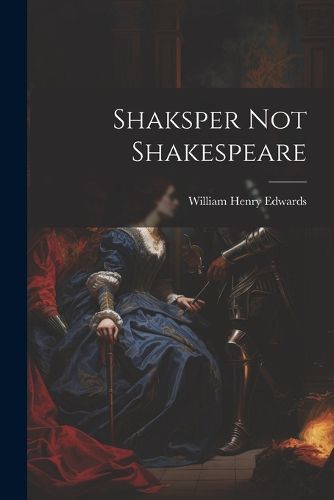Readings Newsletter
Become a Readings Member to make your shopping experience even easier.
Sign in or sign up for free!
You’re not far away from qualifying for FREE standard shipping within Australia
You’ve qualified for FREE standard shipping within Australia
The cart is loading…






Dive deep into the Shakespeare authorship debate with this critical examination of the evidence. Arguing that the true identity of Shakespeare was in fact Sir Henry Neville, William Henry Edwards marshals an impressive array of historical, archival, and literary evidence to support his case. With meticulous research and engaging prose, this volume is sure to spark new debates and discussions among Shakespeare scholars and enthusiasts alike.
This work has been selected by scholars as being culturally important, and is part of the knowledge base of civilization as we know it.
This work is in the "public domain in the United States of America, and possibly other nations. Within the United States, you may freely copy and distribute this work, as no entity (individual or corporate) has a copyright on the body of the work.
Scholars believe, and we concur, that this work is important enough to be preserved, reproduced, and made generally available to the public. We appreciate your support of the preservation process, and thank you for being an important part of keeping this knowledge alive and relevant.
$9.00 standard shipping within Australia
FREE standard shipping within Australia for orders over $100.00
Express & International shipping calculated at checkout
Dive deep into the Shakespeare authorship debate with this critical examination of the evidence. Arguing that the true identity of Shakespeare was in fact Sir Henry Neville, William Henry Edwards marshals an impressive array of historical, archival, and literary evidence to support his case. With meticulous research and engaging prose, this volume is sure to spark new debates and discussions among Shakespeare scholars and enthusiasts alike.
This work has been selected by scholars as being culturally important, and is part of the knowledge base of civilization as we know it.
This work is in the "public domain in the United States of America, and possibly other nations. Within the United States, you may freely copy and distribute this work, as no entity (individual or corporate) has a copyright on the body of the work.
Scholars believe, and we concur, that this work is important enough to be preserved, reproduced, and made generally available to the public. We appreciate your support of the preservation process, and thank you for being an important part of keeping this knowledge alive and relevant.